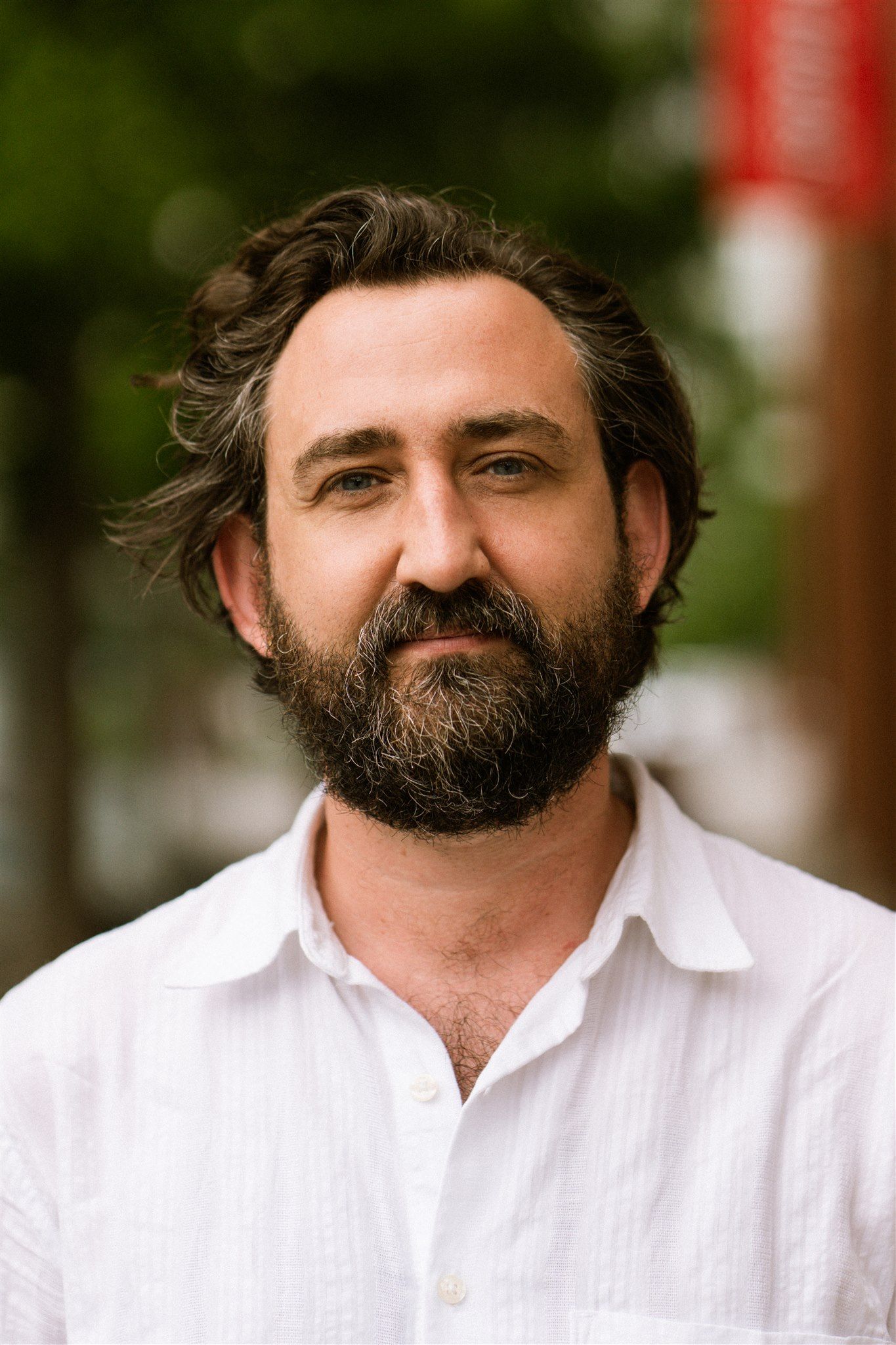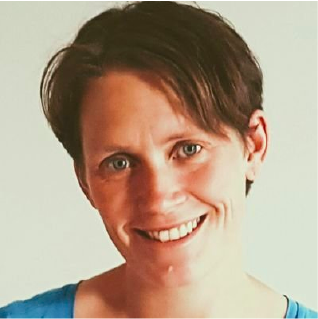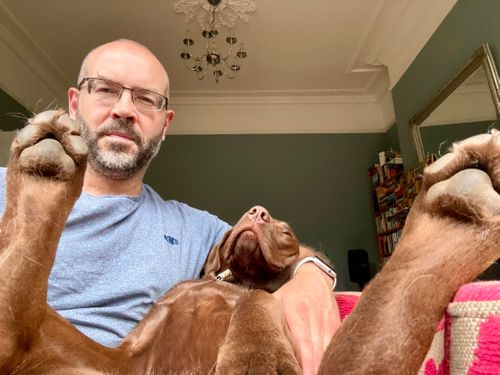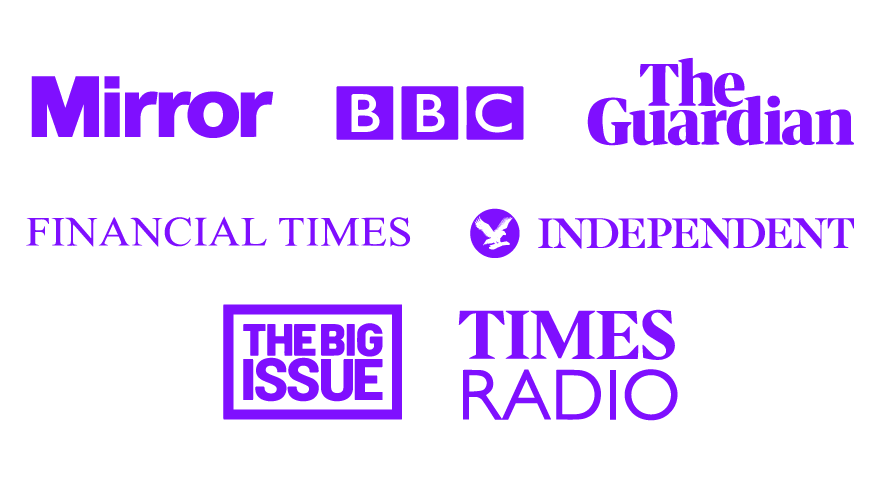The Social Policy Association (SPA) holds an annual international academic conference, which regularly attracts up to 250 delegates. Those in attendance are researchers, teachers, students and practitioners of social policy from the UK and overseas. This year the conference took place in Swansea (Wales) on the 8th and 9th of July and members of the Covid Realities team delivered a plenary session which received a standing ovation and an abundance of positive feedback from those in attendance. Here, we bring together the speeches delivered by members of the Covid Realities project.
Shirley
I’m Shirley, a disabled lone parent in receipt of legacy benefits, a mother of three and carer to my 17 year old son. I’m an anti-poverty campaigner with the Joseph Rowntree Foundation and OnRoad Media’s “Talking About Poverty” group. I have been a participant of the Covid Realities project for 2 years. Covid Realities was a joint qualitative project between the Universities of York and Birmingham, plus Child Poverty Action Group (CPAG) and 13 other collaborators. It was designed to capture the lived experience of UK families with children under 19 living on low incomes as they attempted to make ends meet in an increasingly austere world as a consequence of the pandemic.
I became involved initially with the design of the Covid Realities website back in June 2020. The Covid Realities website was an interactive mixed media platform where we could interact with the research team and tell our stories; stories that tended not to be captured by traditional methods of statistical analysis. With over 100 participants nationally, it provided real time responses to the unfolding pandemic crisis via answers to the “Big Question of the week” and diary entries (which could be written, dictated or filmed). We could also upload photographs, pictures, poetry on our personal diary pages - whatever and whenever we wanted to express our feelings at the difficulties we were experiencing. We held regular “Big Ideas” meetings via Zoom to discuss how we could further promote our messages. In addition, it has provided a rich historical archive of ordinary people's lives during what has proved to be an unprecedented global event.
As a consequence, the participants, in collaboration with the team, produced lived experience examples to illustrate the content and context for Covid Realities’ (2022) final report. We participated in webinars, engaged in craft activities to produce an online Zine with the assistance of a Digital Zine creator and made audio clips. We engaged in creative writing sessions with a professional writer in order to produce blog content; contributions that have been incorporated into the writing of a book by the research team which is due for publication in due course - entitled: “A Year Like No Other: Life on a Low Income During Covid-19”. Furthermore, our voices and lived experiences have been spread far and wide with participants being platformed on BBC News, Radio 4, The Guardian, The Big Issue, The Mirror, The Financial Times, on social media platforms and finally here in Abertawe/Swansea at SPAs annual conference.
Ella
My name is Ella, and like many others here today, I’ve been a Covid Realities participant over the last 2 turbulent years. Collectively in a virtual dialogue spanning the breadth of the country, we have been able to join forces by the good grace of the internet to partake in some extraordinary and life changing work. The plenary being hybrid today does well to reflect the important nature in which Covid Realities operates, and offers the chance for many of us to interact online at a time when so much of everyday communication was impossible. It has meant a great deal to me to be able to have been involved in such poignant work surrounded by such an inclusive and caring group of people, of which every member has brought their own unique story.
We all hope that the takeaway from this project will lead you to share our sense of the urgent need for radical changes to be made to the social security system. By listening to us, we also hope you will recognise the expertise we hold, and the value in us all working together to improve things. Something which matters for all of us. Thank you.
Kim
Is the benefit system financially adequate? The honest answer to that has to be no. Due to this fact my family, along with thousands of others, are being plunged deeper into debt, desperation and an era of complete poverty. My name is Kim, I live in North Wales with my husband and our four amazing sons aged 9, 11, 12 and 18 years old. My husband works in construction but suddenly lost his job during the pandemic leaving us reliant on benefits. Before this we had enough to manage financially, we weren’t comfortable, but we managed. Our life since being reliant on benefits has seen a dramatic shift.
We can no longer afford to heat our home. We have had to resort to many layers of clothes and hot water bottles. Watching my children cry and shiver while trying to dress for school in the morning is heart-breaking. Having to plan when we can have the hot water on has resulted in us only showering once a week and washing out of the sink, heated with kettle boiled water, throughout the rest of the week. We are also now at a point where we are essentially rationing what little food we do have. My children do not have snacks or free access to fresh fruit as the cost is far too high. Fresh fruit and vegetables should not be a luxury.
My children are not able to be carefree children. We have had to sit them down and try to explain why we cannot just put the heating on, why we cannot do fun family things like their friends families do, why they cannot go to the birthday parties of their school fiends and, most heartbreakingly, why they cannot just have a snack when they are hungry. No child should have to worry about money yet my children and many others from families in similar circumstances do! As a mother I cannot express the impact this has had on my mental and emotional health. Everyday I feel I am letting my children down, I cannot keep them warm or keep their tummies full, they are not able to have the childhood they deserve. These thoughts occupy me constantly.
The only way this will change is if people in power actually listen to people with lived experience, which is why I am so grateful to the Covid Realities research project for providing me with opportunities to bring attention to the issues faced by my family and so many others. I have been working with Covid Realities for many months which has given me a platform to publicly give families struggling with poverty a voice. I have done radio and newspaper interviews, been part of a zine and taken part in webinars. I have done these things because we need to be heard, we need someone to stop, listen and help us to get out of this impossible situation.
All too often we are ignored and made to feel like the country’s dirty secret, this needs to change and change quickly. A light needs to be shone on us as opposed to forgetting about us and the true impact their decisions have on so many already desperate families. These are some changes we feel need to happen to ensure adequacy within the social security system, including the need to raise benefits in line with the current levels of inflation, the need to end the benefit cap, and to make sure there is targeted support for families with children. These changes would make a huge difference to families like mine trapped in this never ending downward cycle of poverty. It would mean families could live rather than barely surviving, it would mean children get to be children and not worry about if their parents can afford that educational school trip or when the next time they will be warm with full tummies.
Tayyaba
My name is Tayyaba. I am a single parent, NHS key worker and a survivor of domestic violence. I was on benefits for almost 10 years in 5 boroughs in London and working as a volunteer in a community. It's not a surprise, I was never supported by DWP coaches: except for rude and judgmental behaviour and not even a single kind word. They acted as if the money provided by the government was going out of their own pocket.
Just as an example, one time, I was sitting with my son on the sofa waiting to be seen by the DWP coach. A female work coach came with another colleague and stood beside me and said, ''I choose good perfumes, not cheap ones, and I can because I’m working, not on benefits.'' Her words affected me with so much power like a stab. And the way she looked at me, I will never ever forget that. This is not the only example, there are many others but there is not enough time for me to explain it today.
I was a victim of domestic violence and people think I'm vulnerable to everyone and that is not true at all. I have been hurt because I had no choice but to stay on benefits. My son is 11 years old and I don't want him to think that if his dad is not around, we can't have basic necessities. Sometimes he can't go to a birthday party because I can't afford to buy a gift or have a birthday party for him. My son is worried about me when I'm unhappy or anxious because we don't have enough money. I cannot afford a one week holiday away from home. It's not a luxury, it’s important for mental health.
I have a question to ask you, are my son's school shoes important to buy or are my correct work shoes? If my work shoes are not correct a fall can happen, then, how do I survive on unpaid sick leave? I have to make a choice here: of course my son's shoes.
The DWP does so many surveys asking claimants, “what changes do you want or need?” I think they need to train staff to support people efficiently. I never saw a positive change. What are we asking for? Tailored support. Listen to us, like, really listen to us. We are human, just like you. Not a number.
The DWP are in a position to support us and make a positive difference in our life forever. We need support to thrive in the future. My son needs a carefree childhood not having to be older than his age. I am doing my very best to have a simple life. Where me and my son can have a lovely time together and can work towards a better future for him. My son wants to be a palaeontologist and for that he needs a good education and financial and mental stability.
Caroline
I’ve been a working single mum for just over 9 years, my child is now 11. I have always worked - albeit low paid work - but providing a valuable childcare service in my own community as a registered childminder. My wages were always poor. In Northern Ireland we do not fund childcare spaces. We don’t get free spaces and we don’t even have a childcare strategy in Northern Ireland. I relied on Working Tax credits at that stage, to bolster my income, obviously as a single parent with a child to look after.
I moved on to Universal Credit in August 2020, after a change of circumstances, and I needed help with my housing costs. Even with the £20 uplift it was tough going but I managed. I had no debts prior to switching on to Universal Credit, the transition meant I ended up with a Working Tax Credit debt which is now being taken out of my already basic level of support.
We didn’t have enough to get oil to heat our home and we still rely on an open fire, that’s been going on for almost 2 years. To top this stress off, I was still having to engage in monthly meetings, phone calls and accepting commitments while working 40 hours. It made me feel like my job was of low value, both in terms of finance and the service I was providing.
I lost my job in December 2021 and was solely on Universal Credit until I secured a new job in January. Trying to buy suitable clothing for work, diesel, maintaining my car so I could get to work, even renewing my driving licence, the things people don’t think of as important but they were to me because I live in a rural area and I need my car. I need these, obviously, to get to work. I had no finances, I had no surplus so I reached out to my Universal Credit work coach and asked for help, explaining my situation and she basically said, “well, at least you have Universal Credit”. And that’s what I was told. So, with a wee bit of guidance from people on social media, I was able to go back to her and say, “well, there must be something else”. Obviously, in Northern Ireland there’s a bit of discretionary support and they had put in different mitigations. And she went, “oh, we do have discretionary support there and we can take a look at it for you”.
But again, everything had to be paid for upfront and then I had to wait for them to submit the receipts and for it to come back. So, obviously, when you’re on Universal Credit you’re living on a really low income and you’re spending all this money it’s like, “how can I survive for the next 3 weeks if you’re expecting me to spend this amount of money to get to work?” It’s a long wait when you’ve got nothing else, basically.
I’m now an SEN classroom assistant, I work 30 hours. I’m still just getting by. Prioritising finances means we still have no oil in our tank because I’m putting money into diesel now. There’s just nothing, it’s all prioritised. I don’t get paid when I’m not at work, so now I face a 9 week summer holiday on Universal Credit alone and the same vicious cycle in September when I return and have a 6 week wait for the payment when I do return.
Covid Realities has been such a valuable lifeline to so many of us living on a low income, isolated in our homes. It’s given us a voice. We share our worries and the impact of low income, not just financially, but the mental and physical impact on us and the emotional impact on us and our children.
But we took our discussions a little bit further. We are smart, intelligent, articulate people - not lazy scroungers. We want better for everybody, not just ourselves. We believe life can be better if these issues are addressed with understanding, listening, empathy and a participatory approach.
We believe to reset the social security system we need to begin with an adequate level of finances. The restoration of the £20 Universal Credit uplift and an extension to legacy benefits. Punitive measures like the Benefit Cap and the 2 Child Tax Limit must be removed because this only harms children and the most vulnerable. Universal free school meals for all children in school would automatically put around £15 per child back into the pockets of households, the poorest especially. Increase Child Benefit by £10 per child. Make childcare affordable. Have greater investments in providers, not the eradication of safeguarding.
Treat us like individuals, with dignity and respect, we’re not caseworkers. Work coaches should avail training on how to use their language, how to support us to gain education and improve our life - not just getting a job for the sake of getting a job. Recognise our skills, our degrees, our right to equality of opportunity. We have teachers and really smart people in our group that just don't get that opportunity now.
Bring lived experience to the front of every discussion. A seat at the table to advocate for ourselves and others, to create a better future, filled with hope and opportunities for everybody. Based on my own experience I believe every person going into a new job after being on Universal Credit and not working, should be awarded a grant to support them with those additional costs, thus alleviating that worry and pressure for 6 weeks.
I want to say a big thank you for listening to our story, my story, our shared stories, our experiences and our wish list to make society better.
Emma
I am Emma, I am a 29 year old mum to 3 beautiful children, aged 3, 4 and 8. Before the pandemic we were a normal family with enough money, by no means comfortable, but enough. The November before the pandemic I had to give up my job due to a serious illness my daughter was diagnosed with. Fast forward to 4 months into the pandemic, my husband was furloughed at 80% and we were awaiting Universal Credit. This was where our struggles started, little did we know just how bad it was going to get.
During the height of the pandemic food in our house was rationed and food shopping trips to the supermarket became a luxury. These times took their toll on all of us as a family including the children who most people would assume were too young to be affected. We had countless arguments over food as when children are bored all they want to do is eat and they couldn’t understand just why mummy and daddy kept saying no.
Payment deadlines began to not be met on time and once you're in a financial downward spiral it’s terribly difficult to get out of. At first talking about our experience was difficult and I felt ashamed to admit the situation we were in. The words, “well if you can’t afford to have kids you shouldn’t have them”, used to play out in my head over and over. I soon came to realise that if no one speaks out how will other people know?
Since joining Covid Realities I am no longer ashamed of our situation and it has sparked the fire in me to help people by sharing our story and trying to make a change. We were thrown into this situation which was beyond our control and no fault of our own which leaves a feeling of anger and bitterness but those feelings need to be let go in order to prevent us sinking deeper. The last 2 years have had a great mental impact on me as the glue trying to hold our family together and the worries are all consuming from the moment you wake to the moment you go to bed.
I strongly believe that raising awareness is the way forward, it also helps to make others in similar situations feel less alone. One of the main things I have learnt in life is the need to have lived experience, when applying for a new job 9 times out of 10 it's the previous experience you've had that secures the role. Also, personally I know I can do a job more effectively when I have the prior knowledge. As a country at the end of the day the majority of folk just want a more smoothly run system without so many loopholes. In order to do this I believe people with experience should be brought alongside policy makers to work together. I feel this strategy would be highly beneficial to repair the fault in the system ready for future generations.
Two days ago my local council brought me into one of their meetings to do exactly that. In their words they felt, “I had experience on the frontline”. This, albeit small, is a step in the right direction to get voices heard and to try and end the cycle of being born into low class families without the help of escaping the same fate. I hope this strategy is copied across councils across the country as I respect and appreciate the opportunity to speak Immensely.
Many people have suffered due to certain policies made in the past few years and as a country we can do better. It shouldn't feel like a losing battle. We are all in the same storm, just a different boat. We need to take that into account and protect more people with the same umbrella. We as low income families want the opportunity to thrive, not just survive.
So I ask you, would you make such vital decisions affecting so many people without doing the relevant background research into that decision? And I don't just mean what the data says!
Jo
Hi, I’m Jo, I am a participant on the Covid Realities Project and have been almost since the beginning. I am mum to my young son and we live with our dog in the North of England. I am claiming Universal Credit after losing my job at the beginning of the first lockdown, and, because my son is not in full time education and we have little consistent childcare support at this time. It is extremely difficult to forge a decent life from the amount we receive and this is worsening as we see the cost of living spiralling out of control for us all.
I’d like to begin by thanking the amazing Covid Realities Team and our partners Child Poverty Action Group, for the continued interest in our stories and their support through one of the toughest times of our lives. The community which has grown throughout the project has been something I feel tremendously grateful to be a part of. Friendships have been made and it has genuinely changed our experience of the pandemic for the better. Not only did we share the worst and the best of times, we attended creative workshops which included Zine making, writing and sound recording, all focusing on the day-to-day challenges those of us on a low income faced during the pandemic.
Some of us have stepped right out of our comfort zones by speaking to the media, from the New York times to the New Statesman, from ITV to Radio 4’s World at One programme. We recorded our thoughts and experiences in diaries, we’ve written blogs, presented at parliamentary events, and so much more, and all of this work was supported by the Covid Realities team and Child Poverty Action Group.
For some of us this has changed so much in our lives and has made us believe that we are more than a popular narrative which degrades and devalues our place in society, and that is priceless. It has meant for myself, that campaigning and activism is something I now engage in without feeling I won’t make a difference, not just surrounding the subject of poverty, but I include the undeniable experiences so many of us have had which may have lead us to this point, and the exploitation and negative perceptions we are subject to when we experience poverty. It has meant for some of us that we have pursued a more active role in our communities and beyond, and for many of us, it has meant that our desire for change is driven by what has been made possible as we work in collaboration with others.
The community I mentioned earlier, does not simply consist of the participants but is very much across the whole project. Academics, who felt sometimes intimidating to me and to others I know, are our friends and allies and stand alongside us, fully supporting our desire for change. We have co-produced outstanding work and learned that we all want the current systems to reflect our lived experience, and we all understand the need to listen to those of us with that lived experience if there is any hope for systemic change, both now, and, in the future.
The Covid Realities Project has shown that where we may lack the language which people in government and in positions of power may understand, our allies do not. We encourage those of you who are working in this area, to include us in your work. Ask us to become involved, ask us about our experiences, we won’t shatter into a million pieces!! We are intelligent, informed and extremely effective when helping to shape the work you all do. Co-production has meant that we have been able to explore more than ever before and the inclusive research platform used by the project means that the work has been accessible to a hugely diverse group of participants, people who might never have had their voices heard otherwise. We need to continue this going forward.
Ultimately, we are many, and those in power controlling the policies and systems which affect our day to day lives, are few. We need to work together to change the narrative for us all both now and in the future, and working together, it will be impossible not to listen to us. As the Covid Realities project comes to an end, I take immense pleasure in telling you that we are beginning a new project. We will be using the existing model to build upon and working with the core team from Child Poverty Action Group and Covid Realities, the participants will continue from the Covid Realities project to the new project and we hope for additional involvement from others. The new project will be called ‘Changing Realities’ and we would all like to take this opportunity to invite you to work with us, in doing just that. Please involve us in your future projects, consider us when you bid for funding with the desire to influence change. Our experiences are essential in making things happen and creating meaningful systems of support going forward. Ask us to help you to change our realities.
Visit our new project https://changingrealities.org/ for more information and find out how to get involved.














